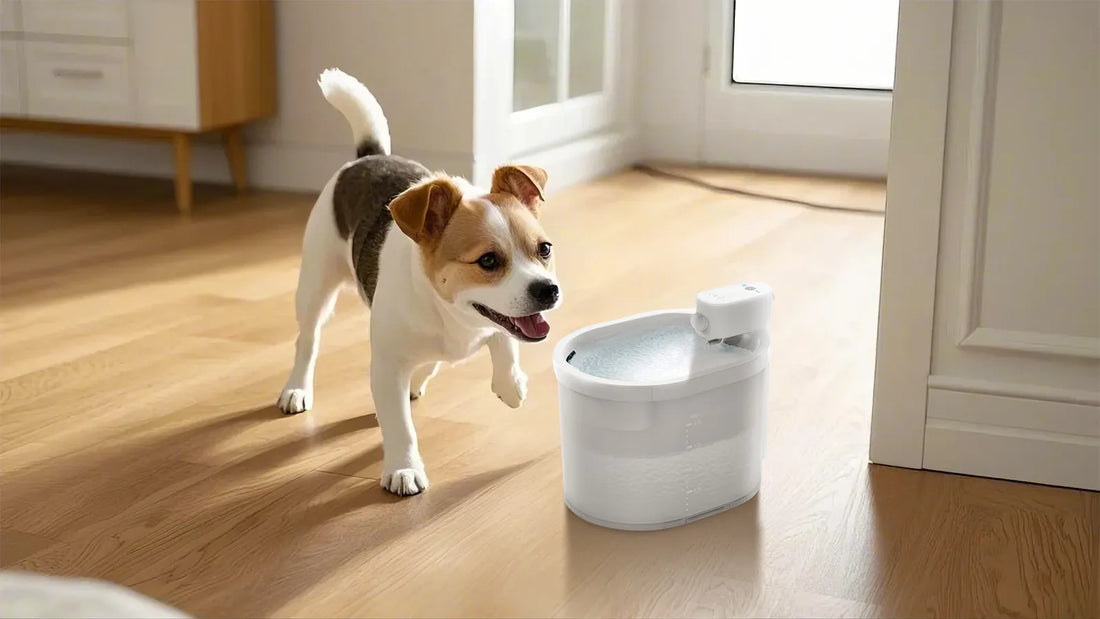If you've found yourself asking, 'Why is my cat suddenly peeing outside the litter box?' you're not alone. This common feline behavior can be frustrating and confusing for pet owners. However, understanding the underlying causes is the first step toward resolving the issue and restoring harmony in your home.
Understanding Feline Behavior
Cats are creatures of habit, and any sudden change in their behavior often indicates an underlying problem. Peeing outside the litter box is a common way for cats to communicate that something is wrong. It could be a health issue, stress, or even dissatisfaction with their litter box setup.
Health Issues
One of the primary reasons your cat might be peeing outside the litter box is a health problem. Urinary tract infections (UTIs), bladder stones, and kidney issues can cause discomfort and lead to inappropriate urination. If your cat is experiencing pain while urinating, they may associate the litter box with discomfort and avoid it altogether.
Other health concerns, such as diabetes or arthritis, can also contribute to this behavior. For instance, a cat with arthritis may find it difficult to climb into a high-sided litter box, leading them to seek alternative spots.
Stress and Anxiety
Cats are highly sensitive to changes in their environment, and stress can manifest in various ways, including peeing outside the litter box. Common stressors include moving to a new home, the introduction of a new pet or family member, or even changes in your daily routine.
Additionally, multi-cat households can experience territorial disputes, leading to one or more cats marking their territory outside the litter box. Ensuring each cat has their own space and resources can help mitigate this issue.
Litter Box Problems
Sometimes, the issue lies with the litter box itself. Cats are particular about their bathroom habits, and several factors can make the litter box unappealing. These include:
- Cleanliness: Cats prefer a clean litter box. If it's not scooped regularly, they may choose to go elsewhere.
- Location: The litter box should be placed in a quiet, accessible location. If it's in a high-traffic area or near noisy appliances, your cat may avoid it.
- Type of Litter: Some cats are picky about the type of litter used. Experimenting with different textures and scents can help you find one your cat prefers.
- Size and Design: The litter box should be large enough for your cat to move around comfortably. Covered boxes may trap odors, making them less appealing to your cat.
Environmental Changes
Changes in your home environment can also lead to your cat peeing outside the litter box. This includes rearranging furniture, bringing in new items, or even changes in the household's scent due to new cleaning products or air fresheners.
To help your cat adjust, try to maintain a consistent environment and introduce changes gradually. Providing plenty of hiding spots and vertical spaces can also help your cat feel more secure.
Age-Related Issues
As cats age, they may experience cognitive decline or physical limitations that affect their litter box habits. Senior cats may forget where the litter box is or have difficulty accessing it. Providing a litter box with lower sides and placing it in an easily accessible location can help.
How to Address the Issue
If your cat is peeing outside the litter box, the first step is to rule out any health problems by consulting your veterinarian. Once health issues are addressed, consider the following steps:
- Clean the Affected Areas: Use an enzymatic cleaner to remove any traces of urine and prevent your cat from returning to the same spot.
- Reevaluate the Litter Box Setup: Ensure the litter box is clean, accessible, and meets your cat's preferences.
- Reduce Stress: Identify and address any sources of stress in your cat's environment. Providing enrichment, such as toys and scratching posts, can also help.
- Monitor Behavior: Keep an eye on your cat's behavior and make adjustments as needed. Positive reinforcement can encourage your cat to use the litter box.
When to Seek Professional Help
If your cat continues to pee outside the litter box despite your efforts, it may be time to seek professional help. A veterinarian or a feline behaviorist can provide further insights and develop a tailored plan to address the issue.
Remember, patience and understanding are key when dealing with behavioral issues in cats. With the right approach, you can help your cat return to their normal litter box habits and maintain a happy, healthy home.
Don't let your cat's sudden behavior of peeing outside the litter box leave you puzzled. By identifying the root cause and taking appropriate steps, you can address the issue effectively and ensure your feline friend feels comfortable and secure in their environment.













